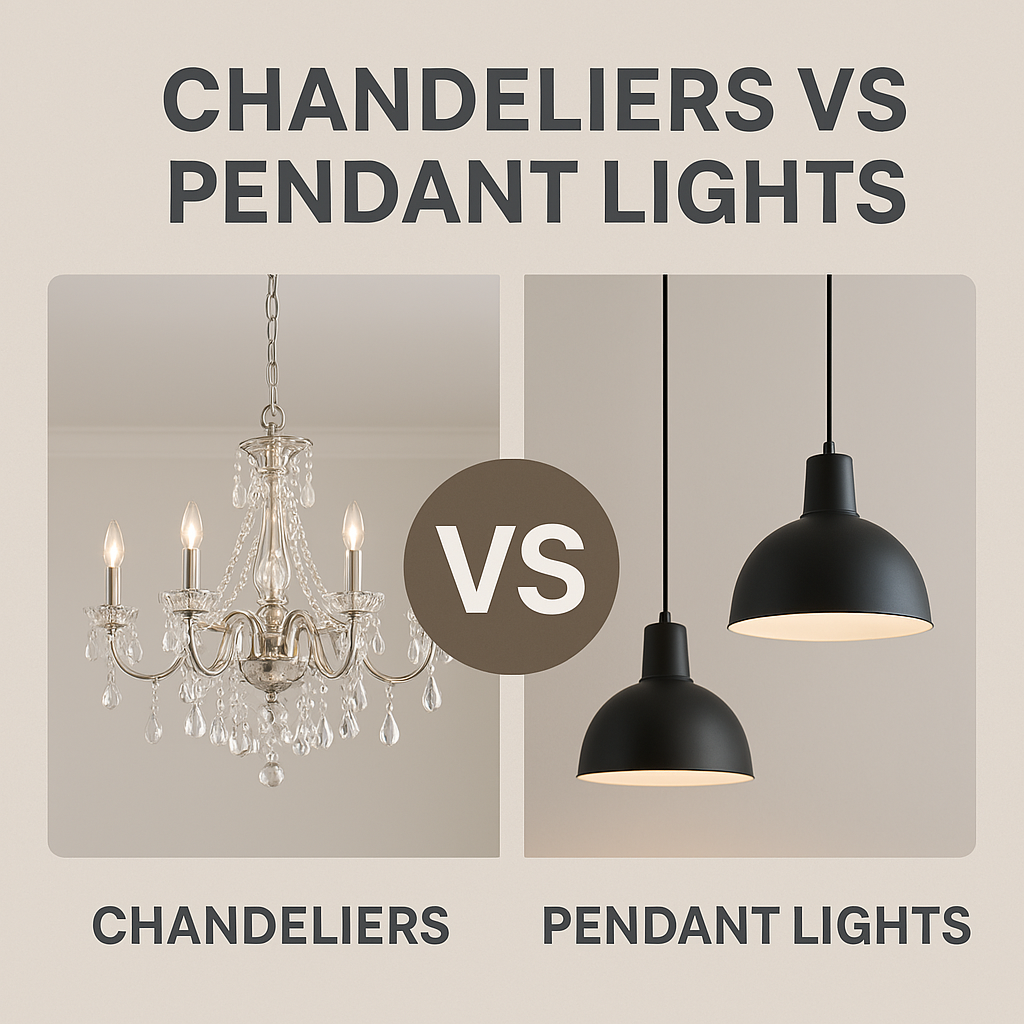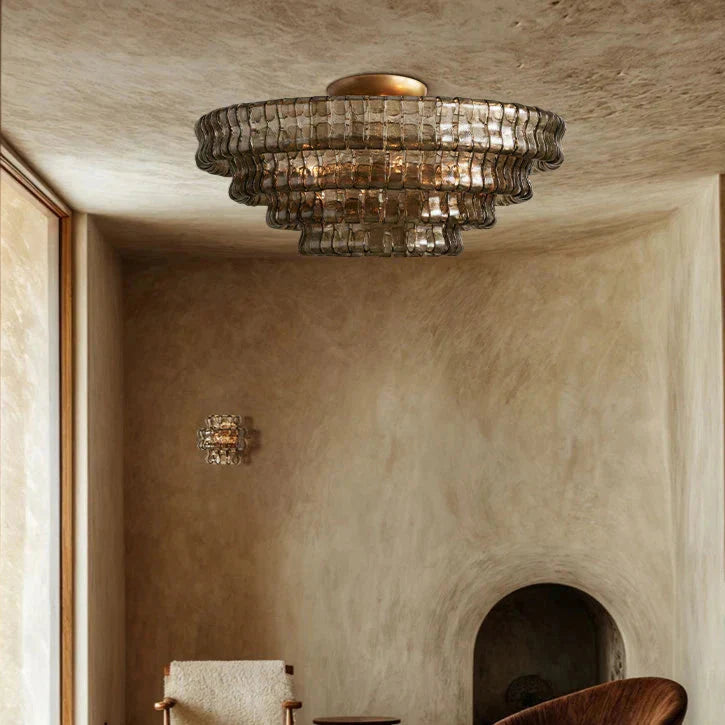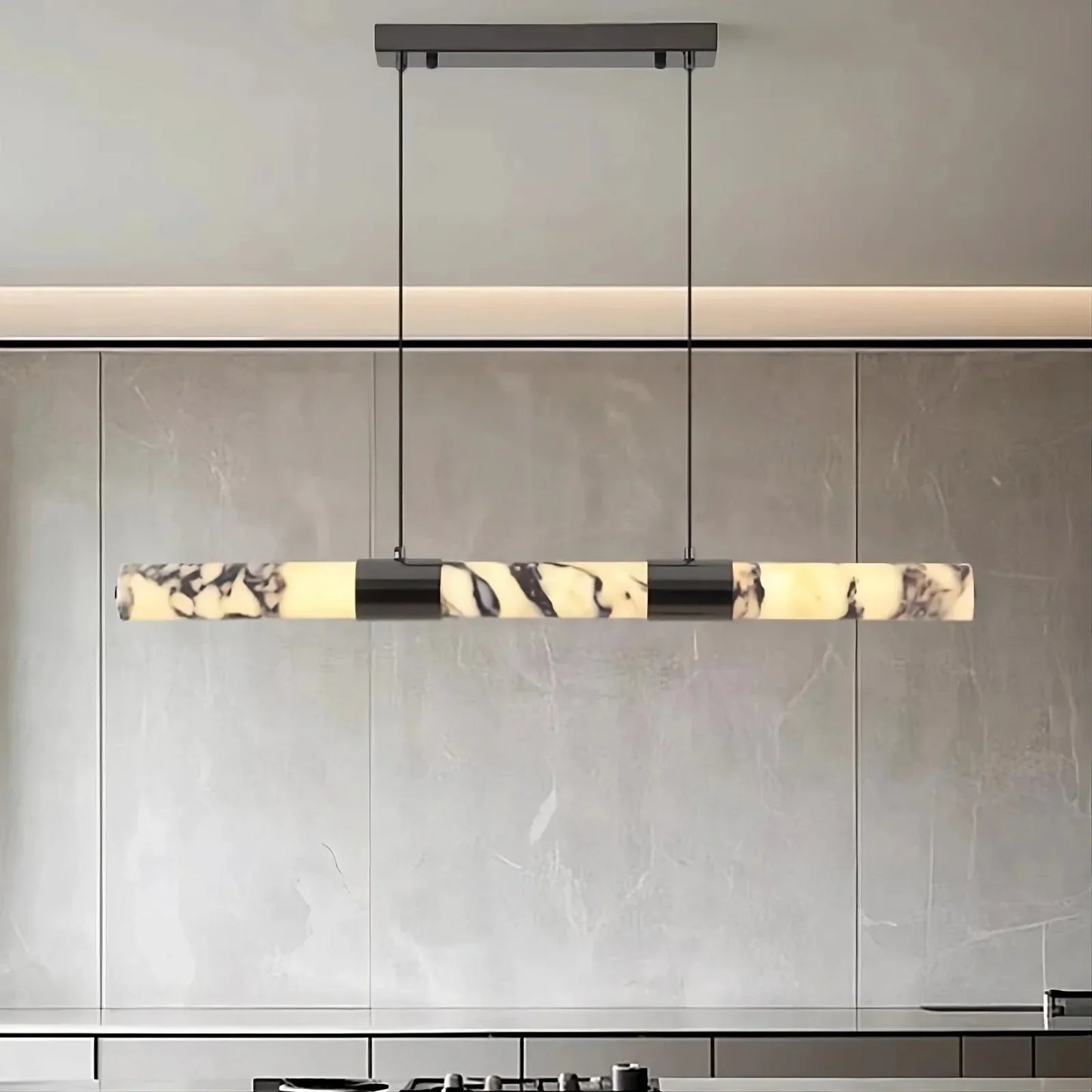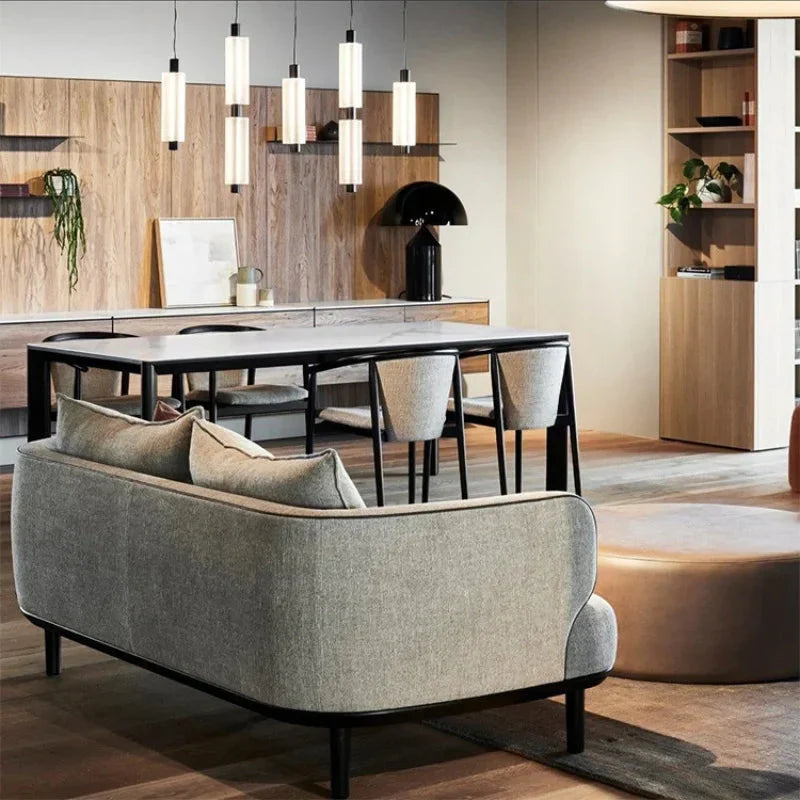
Lighting is more than illumination — it's an expression of style, mood, and sophistication. For homeowners, interior designers, and anyone curating a beautiful living space, the choice often comes down to two timeless favorites: chandeliers vs pendant lights.
Both make a statement. Both elevate a room. But which one is right for your space?
In this guide, we’ll break down the key differences between chandeliers and pendant lights, their pros and cons, and how to choose the perfect luxury lighting for every room — from grand entryways to intimate dining nooks.
What’s the Difference Between a Chandelier and a Pendant Light?
Chandelier: The Centerpiece of the Room
A chandelier is a multi-arm, often multi-light fixture suspended from the ceiling. Traditionally more elaborate, chandeliers are designed to command attention and create a luxurious focal point.
Modern chandeliers, like those found at Morsale, often blend contemporary materials like marble, crystal, and brass with sleek, architectural forms — perfect for today’s design-conscious interiors.
Pendant Light: The Minimalist’s Statement
Pendant lights hang from a single cord, chain, or rod and typically feature one light source (though multi-light pendants exist). They range from simple and understated to bold and sculptural.
Luxury pendant lights, such as Morsale’s pendant collection, elevate this simplicity with premium materials and artful design.
Quick Comparison: Chandeliers vs Pendant Lights
| Feature | Chandelier | Pendant Light |
|---|---|---|
| Number of Lights | Multiple arms, multi-light | Usually single light (but can have clusters) |
| Design Style | Ornate, dramatic, grand | Streamlined, modern, versatile |
| Best for | Dining rooms, foyers, living rooms with higher ceilings | Kitchen islands, entryways, smaller dining areas, bedrooms |
| Ceiling Height | Best for 9ft+ ceilings | Suitable for lower ceilings or specific task lighting |
| Installation Impact | Statement centerpiece | Subtle or task-oriented focus |
| Price Range | Typically higher due to size & materials | Varies widely depending on design |
Pros and Cons of Chandeliers
Pros:
-
Instantly elevates a space
-
Perfect for formal or grand rooms
-
Luxurious materials like marble, crystal, and brass
-
Dramatic ambient lighting
Cons:
-
Requires higher ceilings (usually 9 feet or taller)
-
Typically more expensive
-
Needs space to shine (not ideal for tiny rooms)
Pros and Cons of Pendant Lights
Pros:
-
Extremely versatile
-
Ideal for layering light
-
Works beautifully over kitchen islands or dining tables
-
Great for rooms with standard or lower ceilings
Cons:
-
May not provide enough ambient light alone
-
Smaller visual impact in large, open spaces
How to Choose: Chandelier vs Pendant Light Based on Room & Design Goals
For Dining Rooms
-
Large dining space with high ceilings? Opt for a dramatic chandelier like this sculptural marble design from Morsale.
-
Smaller dining area or modern look? Consider a linear pendant light or a set of clustered pendants.
For Kitchen Islands
Pendant lights are a classic choice here. Use multiples spaced evenly for balanced illumination — think brass and glass pendants for a luxe touch.
For Entryways & Foyers
-
Double-height or grand entryway? Go for a chandelier. It sets the tone instantly.
-
More compact entry? A single statement pendant can provide elegance without overwhelming the space.
For Bedrooms or Small Living Spaces
Pendants are perfect — subtle, stylish, and flexible. Chandeliers work only if ceiling height and room scale allow.
Is a Chandelier Too Much for a Small Room?
Not necessarily. Scale and proportion are key. Mini-chandeliers or contemporary chandeliers with clean lines can work beautifully in bedrooms, powder rooms, or even walk-in closets when designed with balance in mind.
Explore smaller chandeliers in Morsale’s curated collection.
Are Chandeliers Outdated?
Far from it. While traditional crystal chandeliers have their place, today’s chandeliers are modern works of art — blending luxurious materials with minimalist or sculptural design.
See Morsale’s modern chandelier offerings here.
Pendant Lights vs Chandeliers: Which Is More Modern?
Modernity isn’t about fixture type — it’s about design. Sleek chandeliers with marble or matte finishes feel just as contemporary as geometric pendant lights.
Morsale’s collections feature both chandelier and pendant designs crafted for the modern, luxury home.
Final Takeaway: How to Decide Between a Chandelier or Pendant Light
Ask yourself:
-
What’s the room size and ceiling height?
-
Do you want bold drama or quiet sophistication?
-
Is this ambient or task lighting?
-
What materials and finishes speak to your style?
And remember: Sometimes the most elevated spaces layer both chandeliers and pendant lights in complementary ways.
Explore Luxury Lighting That Transforms Your Space
At Morsale, we specialize in luxury chandeliers and pendant lights crafted from marble, crystal, brass, and other premium materials — perfect for homeowners and designers seeking statement lighting with timeless appeal.




